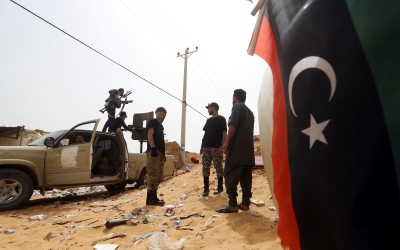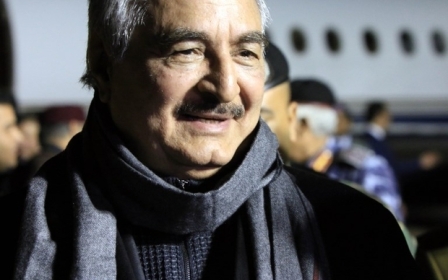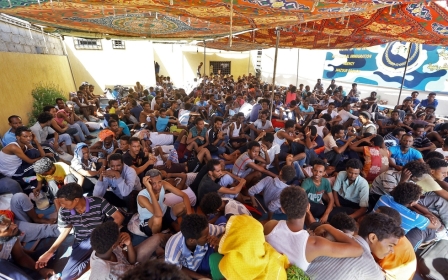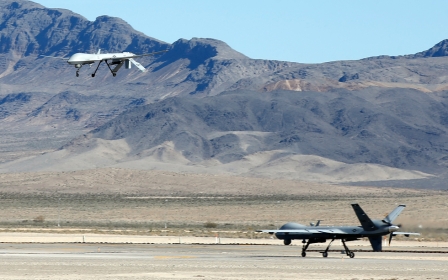Libya: Fighting intensifies but Tripoli stalemate persists for Haftar
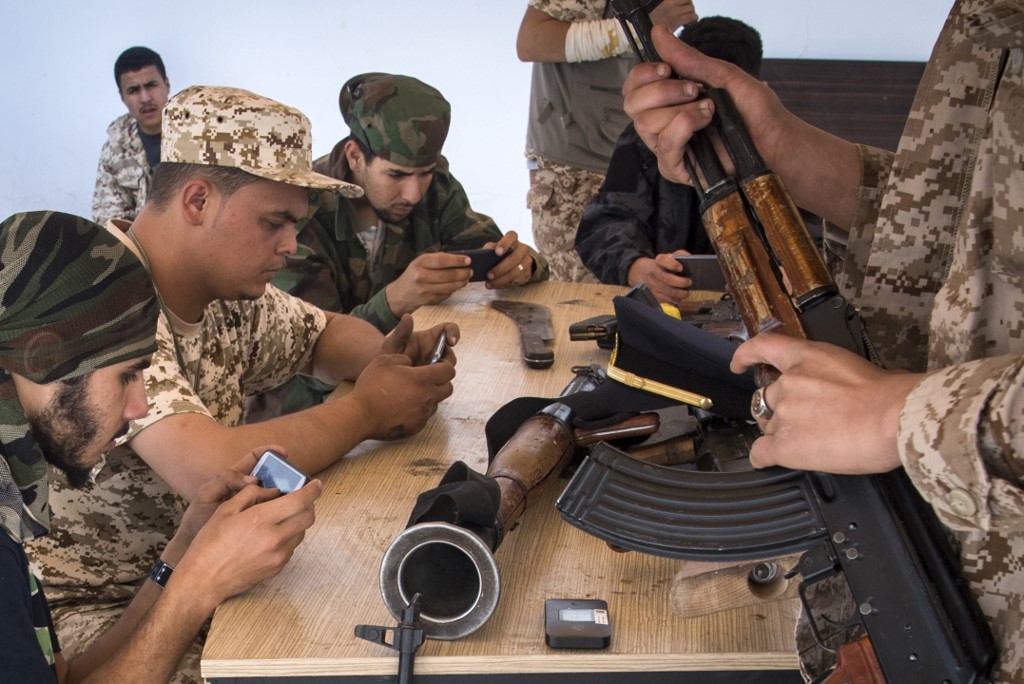
Over a month into eastern army commander Khalifa Haftar's deadly offensive on Tripoli, combat has intensified in the battle for the Libyan capital.
The fighting, now in its fifth week, escalated on Thursday afternoon into the early hours of Friday morning in the area around the former international airport, Reuters news agency reported, citing residents.
Since the ousting of longtime ruler Muammar Gaddafi in 2011, the oil-rich Libya has been split between rival governments, with the internationally recognised Government of National Accord (GNA) based in Tripoli, and a parallel administration, allied with Haftar's Libyan National Army (LNA), in the eastern city of Benghazi.
Advances by Haftar's forces have so far stalled around the tightly defended southern outskirts of the capital, despite a steady supply of troops and heavy artillery rolling in over the past week.
Haftar’s administration has set up its own oil firm and has been seeking to take over oil exports from the state oil company, NOC.
New MEE newsletter: Jerusalem Dispatch
Sign up to get the latest insights and analysis on Israel-Palestine, alongside Turkey Unpacked and other MEE newsletters
In his attempt to seize control of the whole country and its oil revenues, Haftar started his advance on the capital on 4 April, but as of Friday, the battlefield had barely changed, with neither sides gaining new grounds.
According to the latest UN figures, the Tripoli offensive has led to the killing of at least 376 people, including 23 civilians, and the wounding of 1,822. More than 45,000 have fled their homes in the capital following the Haftar-led assault.
Prime Minister Fayez al-Sarraj of the UN-backed GNA has accused Haftar of staging a coup against his government, vowing to defend the city against the assault.
The offensive hinders UN-led peace talks that have sought to facilitate a deal between the rival factions and hold general elections by the end of the year.
Haftar’s declared aim is to restore security and capture the city from “terrorists”, an objective shared with his backers in neighbouring Egypt and the United Arab Emirates.
The UAE’s Minister of State for Foreign Affairs Anwar Gargash said in a Twitter post on Thursday that “extremist militias continue to control the capital and derail search for political solution.” Qatar, the UAE's Gulf rival, has called for an arms embargo against Haftar.
Abu Dhabi hosted talks between Haftar and Sarraj in February, when the two leaders agreed on the importance of holding national elections.
Supporters of the Tripoli government have blamed the UAE for being behind drone attacks on the city.
Military analysts have said the recent raids were carried out using UAE-funded Chinese drones.
“The fact the raids are at night, combined with eye witness reports, make it very likely these are the UAE’s Chinese drones,” Aniseh Bassiri Tabrizi of the Royal United Services Institute told the website Defense News. “The UAE has also used them in Yemen, although there they coordinated with the U.S., while in Libya they are breaking a U.N. embargo on supplying arms to the country.”
The UAE and Egypt have in past years provided the LNA with military equipment, including military vehicles and aircrafts, according to UN reports. The Emiratis also built an airbase at Al-Khadim in eastern Libya in 2016.
Both countries see Haftar as a bulwark against Islamist militants in North Africa and have helped him turn into a major player in Libya.
Middle East Eye delivers independent and unrivalled coverage and analysis of the Middle East, North Africa and beyond. To learn more about republishing this content and the associated fees, please fill out this form. More about MEE can be found here.


